All counties out of poverty in China's Yangtze River Delta
 0 Comment(s)
0 Comment(s) Print
Print E-mail Xinhua, April 30, 2020
E-mail Xinhua, April 30, 2020
Sitting in front of his smartphone, Zhang Chuanfeng touts dried sweet potatoes to viewers on China's popular video-sharing app Douyin, also known as TikTok.
"These are made from sweet potatoes I grew myself. They are sweet and have an excellent texture," said Zhang while livestreaming in Tangjiahui Township of Jinzhai County in east China's Anhui Province. Tucked away in the boundless Dabie Mountains, the township used to have the biggest poor population in the county.
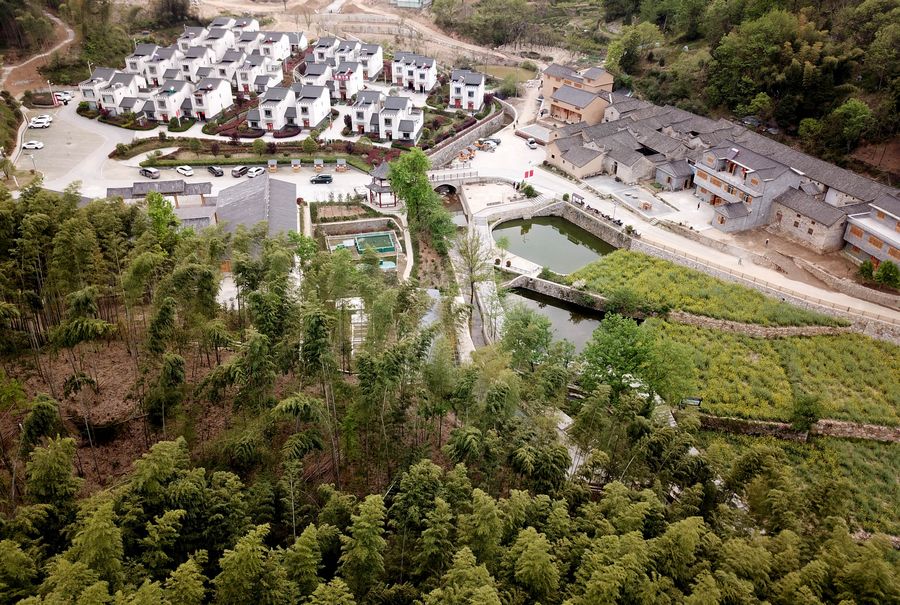
Jinzhai County is among the last nine county-level regions in Anhui that have been removed from the country's list of impoverished counties, according to an announcement issued by the provincial government Wednesday. They are also the last group of county-level regions that bid farewell to poverty in the Yangtze River Delta.
E-commerce
Zhang might seem like a typical e-commerce businessman reaping success in China's booming livestreaming industry. But his road to success has been a lot bumpier: he suffers from dwarfism.
A little more than 1.4 meters tall, Zhang has a babyface, making him "look like a junior school student," he said. But the man, 38, is the father of a nine-year-old boy.
For Zhang, life was tough before 2014. "Nobody wanted me because of my 'disabilities' when I went out to look for jobs," he said. "I was turned down again and again."
Zhang was put on the government's poverty list in 2014 as China implemented targeted poverty-relief measures. With the help of local officials, he got a bank loan of 10,000 yuan (about 1,400 U.S. dollars) and bought 22 lambs. He tended the animals whole-heartedly and seized every opportunity to learn how to raise them more professionally.
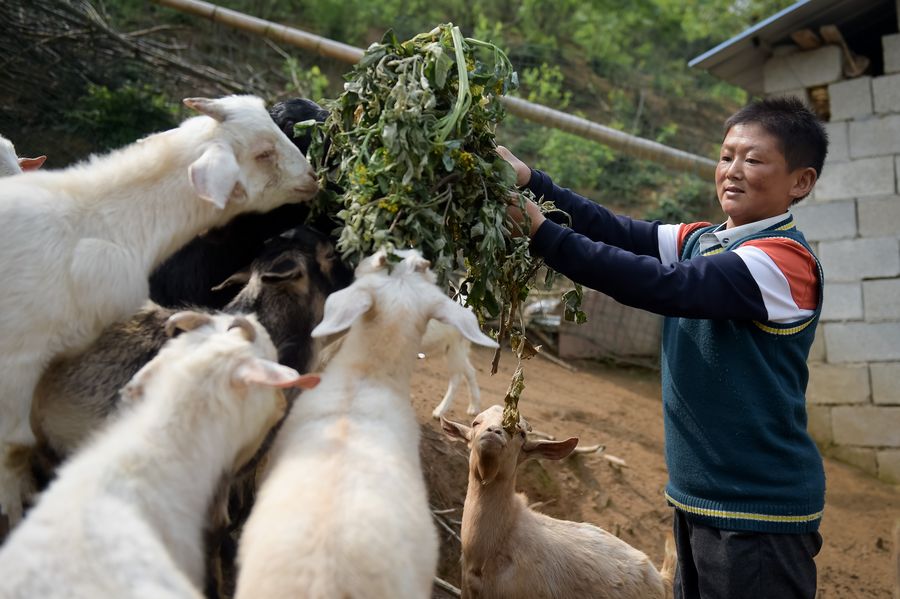
Within a year, the number of his lambs expanded to hundreds. In 2016, Zhang's earnings exceeded 100,000 yuan, more than enough for him to cast off poverty.
Riding on this success, Zhang began to seek new opportunities. He rented a shop and started selling products online to embrace an e-commerce strategy the local government introduced in 2017.
More than 100 online shops, including Zhang's, in the county have helped more than 7,000 poverty-stricken households sell about 73 million yuan worth of local specialties since 2018. Zhang alone earned 500,000 yuan from a sales revenue of 5 million yuan last year.
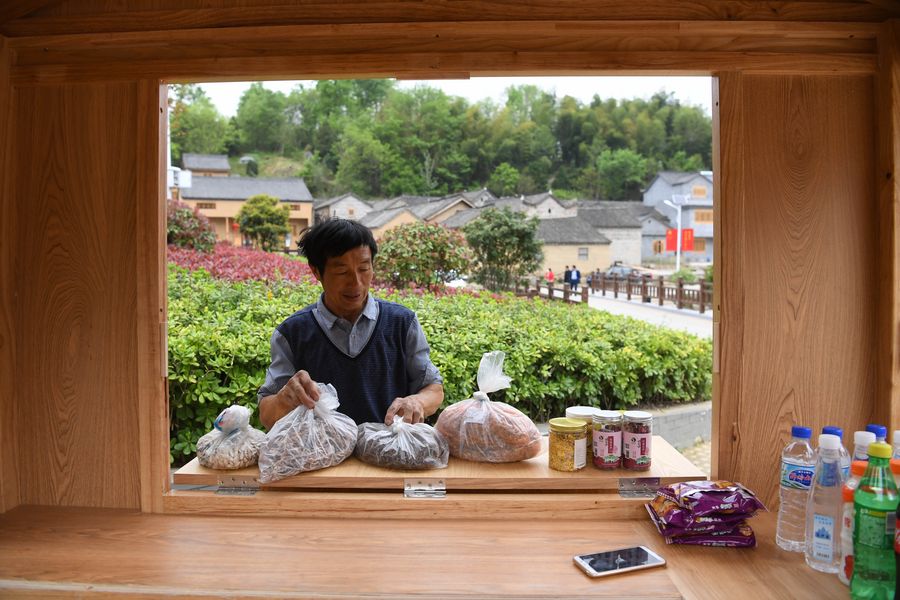
Wickerwork success
About 100 km north of Jinzhai lies Funan, a place that used to be vulnerable to constant floods.
Zhang Chaoling, who lives by the Huaihe River in Funan County, had to flee her hometown at a young age due to floods, but has flourished on a willow plantation along the river later.
"The land is largely covered by silt following continual flooding in the past. It is an ideal place to plant willows and make wickerwork," Zhang said.
Zhang left her hometown for Guangzhou in 1993 and found a job in a garment factory. A few years later, she founded a trading company with her husband in Guangzhou, selling wickerwork products from her hometown to other countries.
Zhang returned to her hometown and set up a wickerwork production base in 2011. Funan is famous for its delicate wickerwork. Skilled craftsmen traditionally use local willow as a raw material to weave products such as baskets, furniture and home decorations.
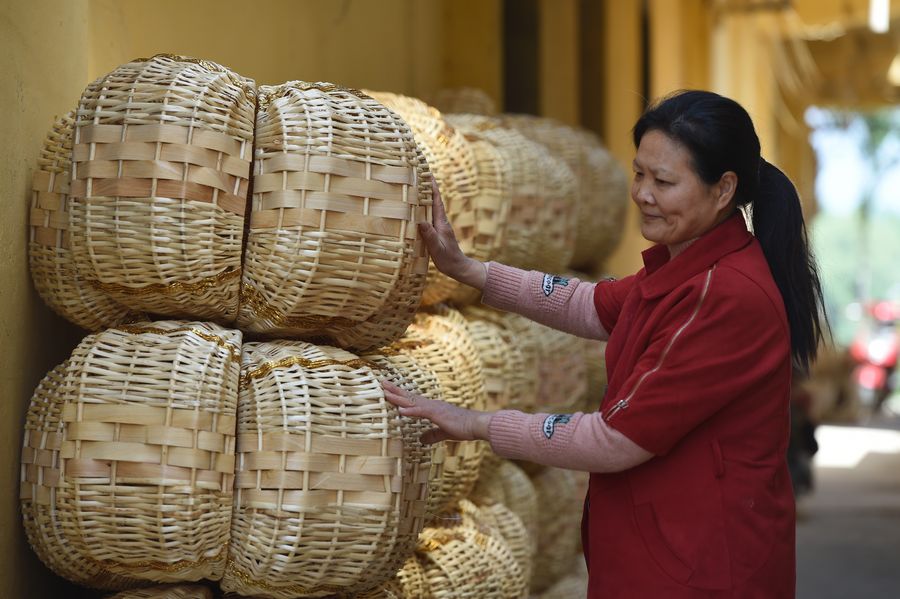
"The flood is well controlled now. I remember the last huge flood came in 2007," Zhang said.
Taking advantage of the fertile land along the Huaihe River, she plants over 130 hectares of willow trees and employs hundreds of locals mostly in their 50s and 60s.
"I can process 100 to 150 kg of willow twigs per day, from which I make around 80 yuan," said Geng Shifen, who peels willow twigs with a clamp next to the plantation.
A total of 130,000 people are engaged in the wickerwork industry in Funan, creating an output of nearly 9 billion yuan in 2019, and helping 15,000 locals shake off poverty, local statistics showed.
Poverty reduction feat
The Anhui provincial government Wednesday announced that its last nine county-level regions including Jinzhai and Funan are removed from the country's list of impoverished counties.
This marks that all 31 impoverished county-level regions in Anhui have shaken off poverty, echoing China's efforts to eradicate absolute poverty by the end of 2020.
With the announcement, all county-level regions in the Yangtze River Delta have been officially lifted out of poverty for the first time in history.
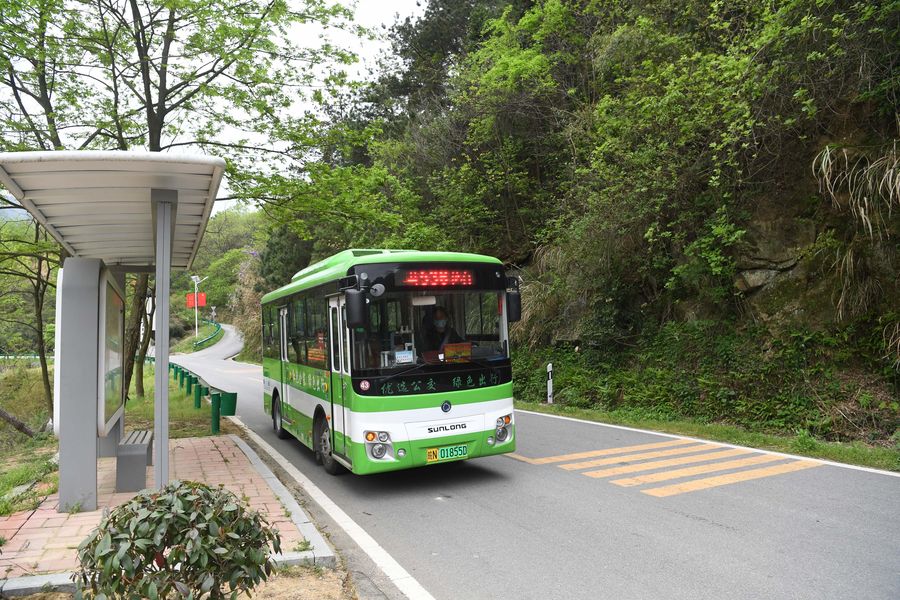
Covering a 358,000-square-km expanse, the Yangtze River Delta, consisting of Shanghai and the provinces of Jiangsu, Zhejiang and Anhui, is one of the most populated and economically dynamic areas in China, contributing one-fourth of the country's GDP.
Anhui had a population of 63.65 million as of 2019, official data showed. The poor population in the province had decreased from 4.84 million in 2014 to 87,000 in 2019, and the poverty headcount ratio had been reduced from 9.1 percent to 0.16 percent during the period, according to the provincial poverty relief office.
A county can be removed from the list if its impoverished population drops to less than 2 percent, according to a national mechanism established in April 2016 to eliminate poverty in affected regions. The ratio can be loosened to 3 percent in the western region.
By the end of 2019, 5.51 million people in China were still living in poverty.
"We will continue our work to prevent people from returning to poverty, and help the remaining poor population shake off poverty by all means," said Jiang Hong, director of the Anhui provincial poverty relief office.





